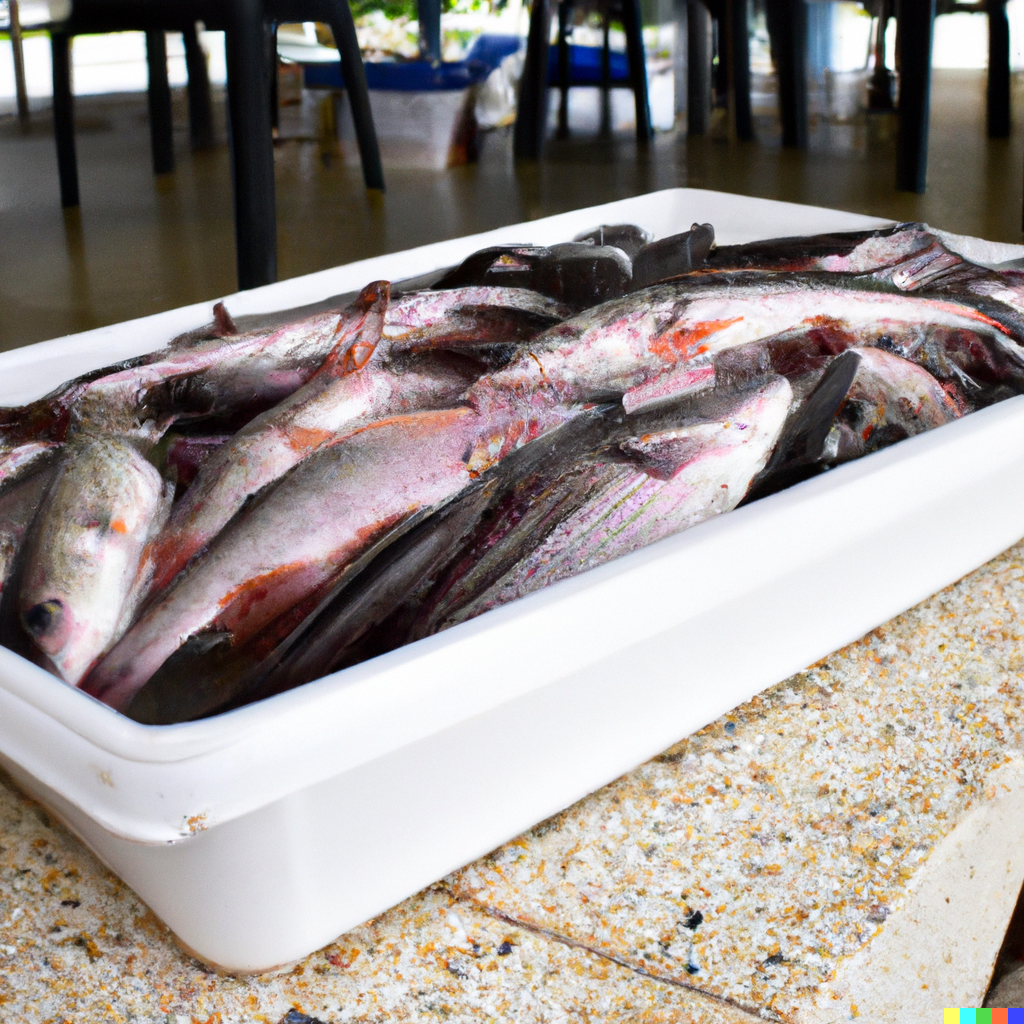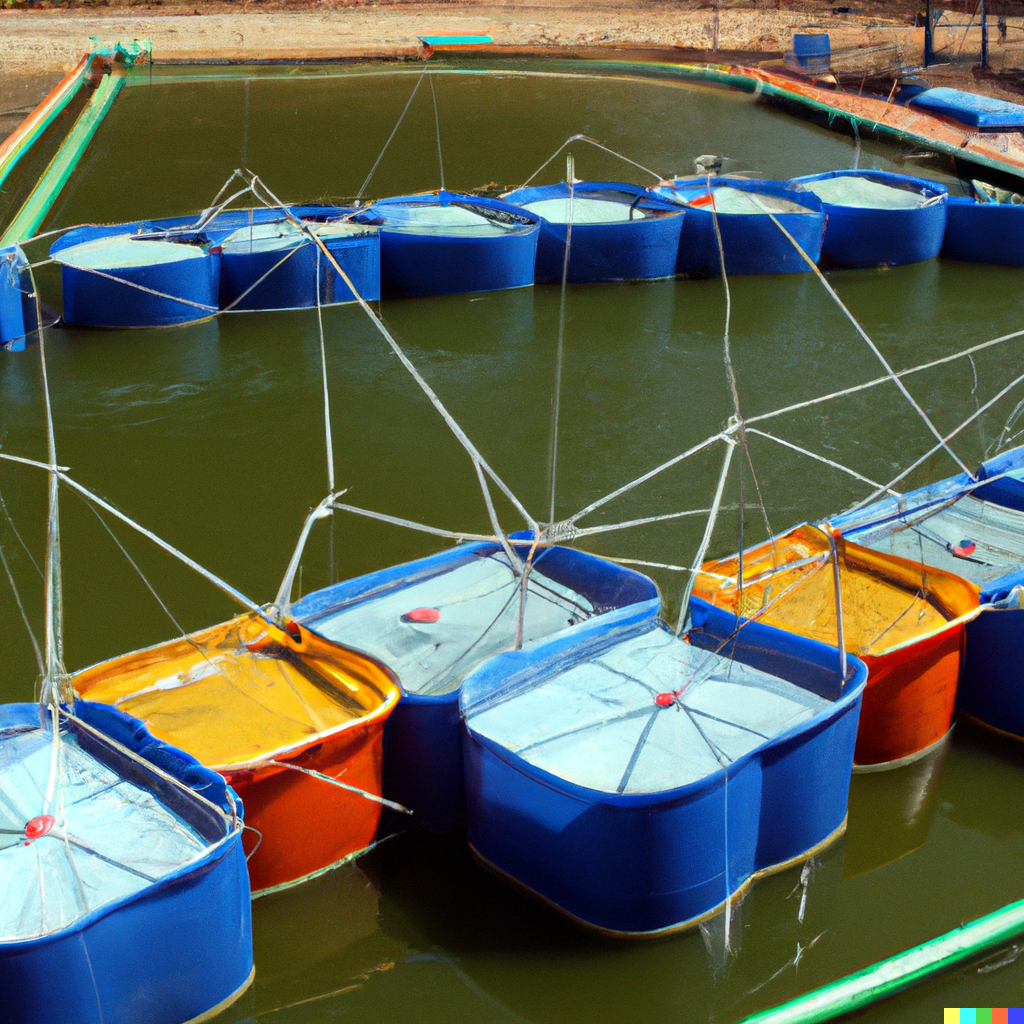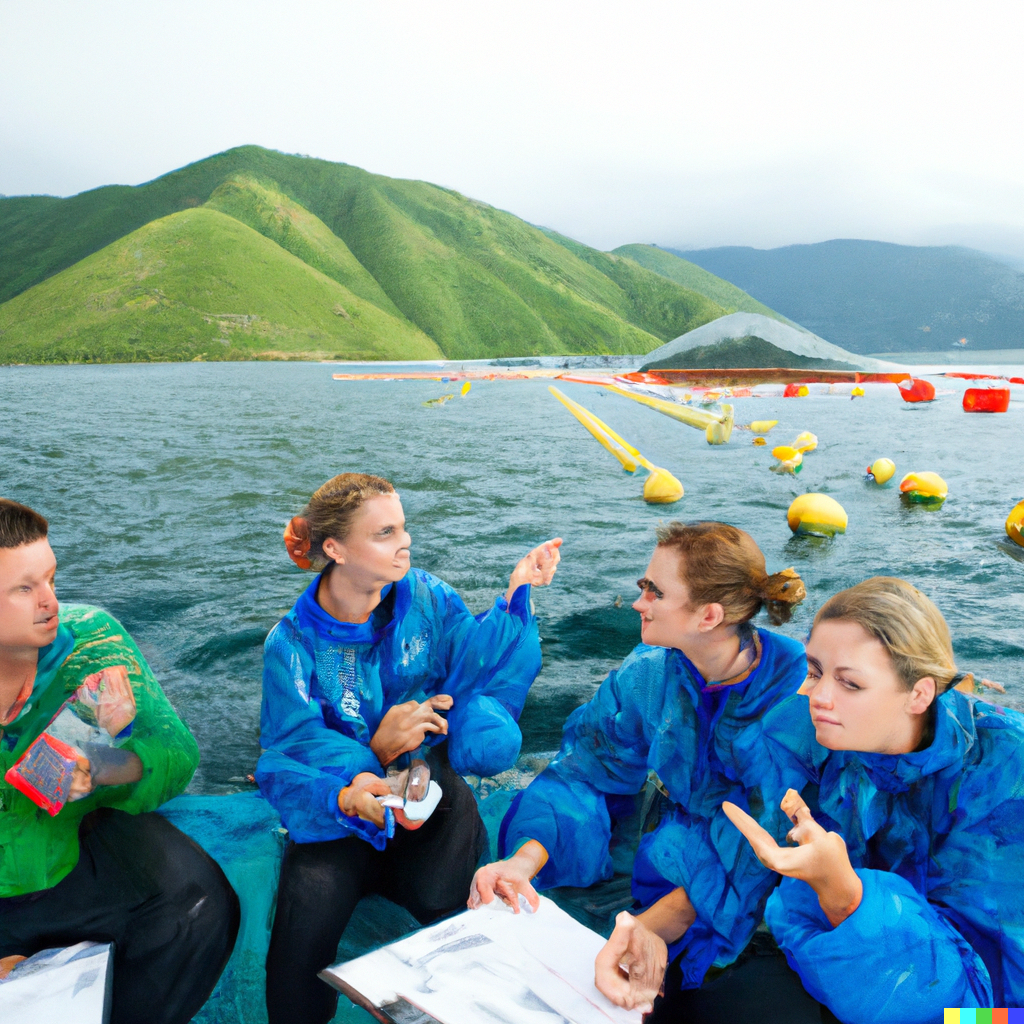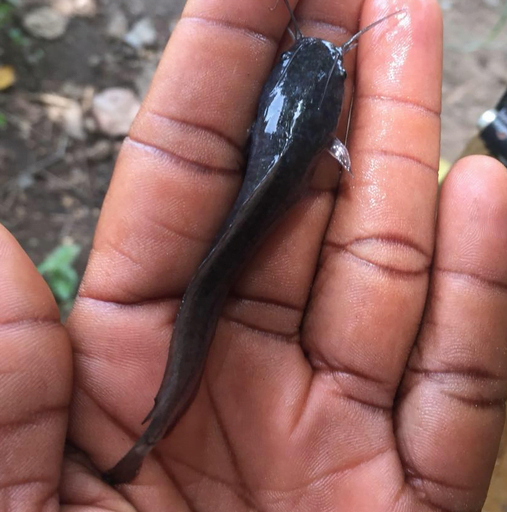Your cart is currently empty!
Exploring Lucrative Opportunities: Top 3 Areas to Profit from Aquaculture in Ghana Beyond Traditional Farming.
Now, You too can farm online and make good profits! You Invest, We Farm, You Profit!
Win-Win
Areas to Profit from Aquaculture in Ghana
In recent years, the aquaculture industry in Ghana has experienced significant growth and has emerged as a promising avenue for entrepreneurs and investors seeking profitable ventures.
Despite the fact that Ghanaians have acquired an insatiable taste for tilapia instead of catfish, much of the hype we see in the aquaculture industry in Ghana has got to do with catfish farming.

It is true indeed that catfish farming offers some advantages over tilapia farming, but challenges in that sector, remain. The high cost of fish feed ensures that farmers who do not utilize alternative feeding methods derive little to no profits.
We have explored many of the challenges that exist with catfish farming in Ghana in previous articles and have offered profound solutions that have led to increased profit margins in our own catfish farms, but more importantly, we have also highlighted these challenges, in a bid to offer new investment opportunities to our readers who might want to solve these challenges.
While traditional fish farming remains a cornerstone of this sector, there exist several innovative and lucrative avenues that extend beyond the conventional approach. If you’re eager to tap into the thriving aquaculture market without directly engaging in farming activities, this article unveils the top three areas to profit from aquaculture in Ghana without farming.
As the demand for fish and seafood continues to rise, driven by both domestic consumption and export opportunities, ingenious business ideas have surfaced that capitalize on this trend.
Whether you’re a savvy business enthusiast, an aquaculture expert, or an aspiring entrepreneur, these areas to profit from Aquaculture in Ghana without farming provide some of the best avenues for profits for entrepreneurs.
Join us as we delve into these exciting possibilities, exploring how you can strategically position yourself in aquaculture-related ventures that promise substantial financial gains. From supplying cutting-edge equipment and offering expert consultancy services to adding value to aquaculture products, this guide will illuminate your path toward success in the dynamic realm of aquaculture in Ghana.
Let’s embark on this journey to uncover the top three areas to profit from aquaculture in Ghana without farming, ever tilling the soil, or raising a fishnet.
Top 3 Areas to Profit from Aquaculture in Ghana Beyond Traditional Farming
Aquaculture Equipment and Supplies
It is said that in a gold rush, the one who supplies the shovel is the one who becomes wealthy, for whether you find gold or not, he would have made his money, the same can be applied to every industry.
Equipment and supplies come first in areas to profit from aquaculture in Ghana without farming, due to its unique advantages of helping you make money even before the farmer does.

Today, many investors are rushing into the aquaculture industry in Ghana, and we expect this trend to continue for the foreseeable future, this means that the demand for equipment, feed, etc. would continue to be on the rise.
The global demand for fish is expected to double by 2050, while that remains true, we are currently consuming more fish from the sea, than we are able to replenish, and overfishing from the sea, even at current rates if not checked might lead to a very dire situation in the near future.
As the demand for high-quality and efficient aquaculture operations continues to surge, the importance of reliable equipment and tools cannot be overstated. This presents a golden opportunity for astute entrepreneurs to establish a thriving business focused on supplying the backbone of the aquaculture sector.
Aquaculture ventures, whether large-scale commercial operations or small-scale backyard setups, rely on a myriad of specialized equipment to ensure optimal growth, health, and sustainability of aquatic organisms.
From advanced filtration systems that maintain water purity to state-of-the-art aeration devices that enhance dissolved oxygen levels, the range of equipment required is diverse and essential.
Your business could serve as a gateway to access these modern marvels. By establishing partnerships with reputable manufacturers and distributors, you can curate a comprehensive inventory of aquaculture equipment, catering to the needs of diverse aquaculturists. From hatcheries and nurseries to fully-fledged farms, your offerings can empower these enterprises to achieve their production goals efficiently.
Beyond equipment, aquaculture operations demand a constant supply of various essentials to create and maintain the perfect aquatic environment. These supplies encompass a wide spectrum, including high-quality fish feed, water quality testing kits, vitamins and supplements, and even eco-friendly pond liners. Your business could be the go-to source for aquaculturists seeking dependable supplies to optimize their operations.
Aquaculture Training and Consultancy
Leverage your expertise in aquaculture to offer training and consultancy services to aspiring aquaculturists, farmers, and entrepreneurs. Host workshops, seminars, and training programs on various aspects of aquaculture, such as best practices, disease management, water quality maintenance, and sustainable farming techniques.

You could also provide personalized consultancy services to help new or existing aquaculture ventures optimize their operations.
As the demand for sustainable and profitable aquaculture ventures surges, the need for expertise, guidance, and innovation becomes paramount. This presents a remarkable avenue for enterprising individuals to dive into a business that imparts knowledge, fosters growth, and catalyzes success in the aquaculture sector.
Without expert consultancy services, many areas to profit from aquaculture in Ghana would remain untapped, leading to competition in very limited areas of the industry, leading to stagnation of the industry in general.
Aquaculture is a multifaceted field that demands a deep understanding of biology, water chemistry, disease management, and business operations. Many individuals and organizations entering the aquaculture arena may lack the necessary knowledge to navigate its complexities effectively. This is where your business can step in as a beacon of enlightenment.
By offering comprehensive training programs and workshops, you can equip aspiring aquaculturists with the know-how required to establish and maintain thriving aquaculture enterprises.
Aquaculturists face unique challenges influenced by factors like location, species, and market dynamics. Your consultancy services can bridge this gap by providing personalized guidance and solutions tailored to the specific needs and goals of each client.
By conducting thorough assessments of clients’ operations, you can identify areas for improvement, recommend strategic adjustments, and devise customized action plans. Whether it’s optimizing feed conversion rates, implementing disease management protocols, or enhancing water quality, your consultancy can elevate aquaculture ventures to new heights of productivity and profitability.
Value-Added Aquaculture Products
In our previous articles, we extensively explored the obstacles encountered in fish farming within Ghana. Among these challenges, catfish farmers face a particularly notable issue: an emerging market that favors live catfish, often served in “point and kill” restaurants.
Nevertheless, for those who seek profitable opportunities, there exist multiple avenues to enhance the value of fish products in Ghana and generate substantial earnings.
While the prevailing notion revolves around freezing and marketing the fish, innovative approaches include transforming the same fish into canned varieties or employing oven-drying techniques, subsequently presenting them in meticulously packaged formats for potential exportation.
The potential within the aquaculture sector continues to expand ceaselessly, with no apparent limits in sight. Even in the event of a severe global economic downturn, the necessity for sustenance prevails, rendering only a handful of industries as recession-resistant as aquaculture.
Investors who can pinpoint a distinct segment within this industry and dedicate their focus to its development stand a promising chance of achieving considerable profits over the long term.
Now, You too can farm online and make good profits! You Invest, We Farm, You Profit!
Win-Win

Leave a Reply